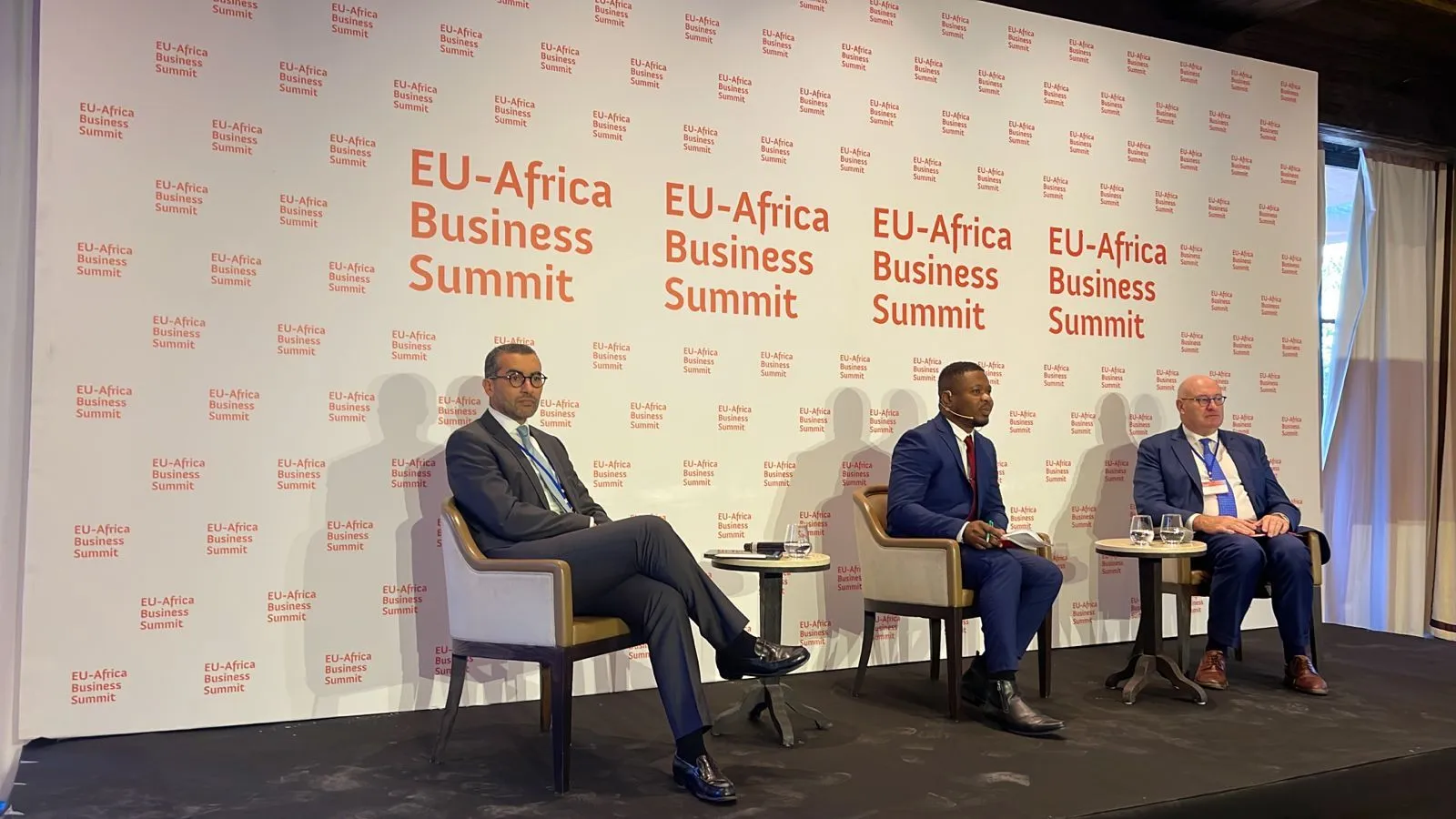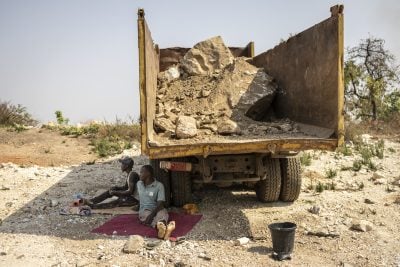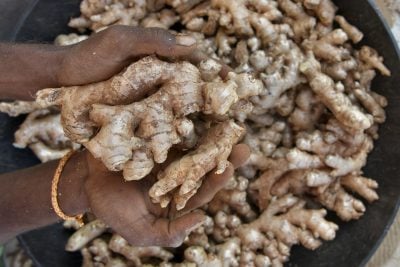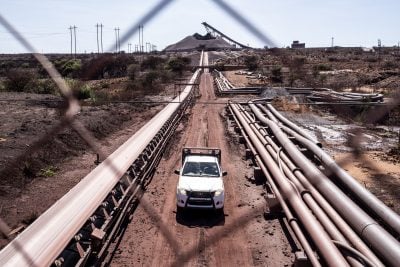This article was produced with the support of OCP
Panellists at a forum on agriculture at the fourth European Union-Africa Business Summit, held in Marakech, Morocco, emphasised the immense potential that Africa has in agriculture.
Africa is said to hold most of the 600 million hectares of arable land left in the world, including 65 percent of the untapped arable. This, they said, makes Africa critical to the future of food production in the world. With 60 percent of Africa’s population reliant on agriculture for income and livelihood, the continent’s own future is also intricately bound to the success of agriculture.
On the panel were Phil Hogan, former European Union commissioner for agriculture, Ilyas El Fali, currently advisor to the chairman of OCP Group, one of the largest producers of fertilizer in the world and Professor Daniel Nahon of the Aix-Marseille University. Also included were Samira Rafaela, member of the European Parliament, Godfred Bahiigwa, director of the agriculture department of the African Union and Willi Schulz Greve, head of unit at the European Commission Directorate General for Agriculture and Rural Development.
The theme for the discussion was “Agriculture and Agribusiness: A stronger agriculture for a fairer rural development”.
Cooperation between EU and Africa is essential
Samira Rafaela pointed out that agriculture is essential to the future of cooperation between the EU and Africa and called for closer engagement to build sustainable food systems on both continents that address the challenges of nutrition and food security. She said the EU’s farm to fork strategy, in line with its green aspirations, was important but stressed that it was equally important that in enforcing its standards, it does not have the unintended consequence of excluding African farm products.
She called for a cooperative approach, where the EU contributes to the development of farming in Africa, while still respecting local methods that have been honed by generation and shown to work. “We must ask how we can incorporate some of these methods that work into the mix of agricultural production and international trade,” she said.
EU has an interest in mobilising investment for Africa
Phil Hogan noted that a lot of the inputs for manufacturing in the EU come from African agriculture, which makes it very important to the economic bloc. The EU is the largest trading partner for Africa in terms of agriculture and it was in the EU’s interests to help mobilise investment to boost agriculture and agro-processing in Africa, which would help create jobs.
He said the private sector was essential to the task of mobilising partnerships for, among others, providing the physical and digital infrastructure that would boost African farming.
“We always relied on government to government engagement to make the actions. This is insufficient. We also need business to business, people to people engagements and that is what we are trying to foster,” he disclosed.
He also cautioned that it was not the EU’s place to impose policies or tell African governments what to do. Policies and projects must originate from African governments while the EU supports with technical and financial resources.
AfCFTA will make food more available
Godfred Bahiigwa observed that one of the key issues faced by African farmer was the high rate of post-harvest losses, which is estimated to be between 15 to 30 percent of annual produce. He was excited by the prospects of the Africa Continental Free Trade Agreement, which would break down trade barriers between African states.
He said the projected boost to intra-African trade would make food more available, reduce costs while improving incomes for local farmers. He said it was important to focus on not just the availability of food, but also on the quality of nutrition and food safety. He said efforts to fortify staple and traditional food crops on the continent will help achieve this end.
The AU, he said, is taking actions across the entire food production spectrum, from production to post harvest management, trade and boosting consumption of safe, nutritious food.
Agriculture can create jobs
Willie Schulz Greve said agriculture has the potential to create jobs and called for more investment in African agriculture with a view to producing more safe and nutritious food. This would help Africa meet the United Nations’ Sustainable Development Goals and the AU’s own ambitions for its Agenda 2063.
He said the right political and economic systems are necessary to attract the sort of investment that African agriculture needs. The continent also needs to devise multi-annual programmes that integrate sustainability and digital tools. He suggested that agri-food platforms that facilitate governments and private sector interactions will help achieve these goals. He also proposed vocational training, exchange, research and innovation programmes to address some of the challenges that African farming faces.
Professor Daniel Nahon noted that agriculture has more severe impacts on the environment than manufacturing and called for more sustainable farming in response to this threat. “We can therefore solve it through science and innovation. Likewise, the problem of energy consumption can be solved by using renewable energy because the sun, wind, tides and geothermal energy are inexhaustible resources,” he stressed.
Sustainability must be embedded in Africa’s green revolution
Ilyas El Fali observed that while the global population is estimated to increase to 10 billion by 2050, arable land is projected to reduce by 24 percent within the same period. This increases the need for sustainable use of land and farming practices that preserve soil health.
He pointed to specific interventions that OCP is making in Africa to make this possible, including Agriboost, which is supporting farmers with training, inputs and marketing of their produce.
He said that sustainability must be embedded in the African green revolution and that OCP was positioned to partner with African farmers, governments and institutions to comprehensively address challenges that the sector faces.
 Sign in with Google
Sign in with Google 



